- Home
- Gerald Hammond
Mad Dogs and Scotsmen (Three Oaks Book 7)
Mad Dogs and Scotsmen (Three Oaks Book 7) Read online
MAD DOGS AND SCOTSMEN
Gerald Hammond
© Gerald Hammond 1995
Gerald Hammond has asserted his rights under the Copyright, Design and Patents Act, 1988, to be identified as the author of this work.
First published in 1995 by Macmillan.
This edition published in 2019 by Endeavour Media Ltd.
Table of Contents
Preface
Chapter One
Chapter Two
Chapter Three
Chapter Four
Chapter Five
Chapter Six
Chapter Seven
Chapter Eight
Chapter Nine
Chapter Ten
Chapter Eleven
Chapter Twelve
I have to thank Barbara Whitehead and her friend Dr Galbraith for their technical help.
I would also like to make it clear that any individual or firm mentioned in this book is totally fictitious, and no resemblance to any real-life counterpart is intended.
G.H.
Preface
Daffy shook her hair with its spangled stripe running through it, and the fine chain which linked her ear to her right nostril glinted in the spring sunshine. That day’s kit featured a black leather jacket over a transparent miniskirt and not very much beneath. ‘No sweat,’ she said. ‘Go for it.’
Hannah looked at Daffy as if at some strange animal. She had never quite got used to her colleague’s manner or style of dress. Hannah wore her usual uniform of a neat blouse and jeans. ‘I’m sure we can manage,’ she said primly.
From the first, I had tried to set my face against taking in boarders. We were, I said many times, a breeding and training kennels. Our stock and trainees were with us for months at least. And we knew about working spaniels. Short-stay boarders would include rare breeds with rare troubles and they would spread their infections to each other and, much worse, to our precious residents. And what about cats?
My voice might just as well have been crying in some damn wilderness. My two partners were of a single mind and it was made up.
Beth, my wife, insisted that the holiday visitors need never mix with the residents and pupils in training. And cats could be turned away.
Isobel, my other partner, her spectacles flashing indignantly, pointed out, first, that she was a qualified vet and perfectly capable of dealing with whatever arose; second, that nowadays inoculation could protect against almost anything short of old age and we already insisted on the production of certificates; and, third, that since circumstances had tricked us into employing two simultaneous, full-time kennel-maids we had better justify their wages by expanding the business.
Without going so far as to admit that I was wrong, I bowed to their combined wills. The isolation kennels, originally built to accommodate infectious stock or occasional bitches in season, were extended, visitors were accepted and to my surprise the venture proved profitable enough to meet the wages bill with a little to spare. Dogs boarded while their owners snatched a holiday abroad were far less demanding of our time than young pups or older dogs left for training for the shooting field.
The next step on the road away from our chosen specialization was taken when a nearby quarantine kennels lost its authorization from the Department of Agriculture and Fisheries, for breaches of the Acts of 1974 and 1981 (as amended) flagrant enough to ensure that they would never get it back. Pressure was on, not only from my partners and staff but also from dog-owners and even, in an oblique way, from the Scottish Office, for us to fill the gap.
The two kennel-maids, Daffy and Hannah, were in agreement for once and seemed more than willing to absorb the extra work, perhaps for fear that redundancy would otherwise claim one or even both of them. Daffy had left us a year earlier to get married but she had been so good at the job, despite eccentricity bordering on the completely zany, that when Rex, her husband, found work on the oil-rigs and Daffy, finding time heavy on her hands, wanted her old job back, we agreed instantly. The trouble was that during her absence we had employed Hannah. And Hannah, who had been engaged on a temporary basis to oblige her father, had settled in well.
It happened that the stone walls of what had been byres when Three Oaks was a farm were still in good order although the roofs had gone, and these walls formed an ideal basis for a compound enclosing a group of kennels and runs. The work was pushed through and Departmental hands were laid on it in blessing. Our position was ideal, near Leuchars Airbase and not far from Dundee Airport or the harbours on the Tay and the Forth. Word must have passed around, especially among servicemen returning from NATO postings with beloved dogs in hand. I had thought that they might be deterred by the considerable cost of keeping a dog in quarantine kennels for six months but I had underestimated the love of the average Brit for his mutt. Almost immediately, we were in danger of being overbooked.
The extra money, I had to admit, was welcome. Our income from breeding and training spaniels tended to be seasonal and I was comforted when, for the first time, we contrived not to dip into the red during the slack season. The dogs in quarantine might require feeding and general maintenance but so far from wasting precious time walking them, we were actually forbidden to do so. My associates absorbed the extra work without apparent effort and I was free to follow my main avocation as principal spaniel trainer and all-round worrier.
Everything in what had once been a garden before the puppies took it over seemed to be lovely. I began to relax, which may have been where I made my mistake. Sometimes I wonder whether, in my moments of worrying, I may not be fending off calamity by sheer willpower. Whenever I relax, disaster strikes.
Chapter One
At the time of the year which is sandwiched between the winter sports and summer holiday seasons, when children and students are beginning the run-up to exams, holiday boarders were comparatively few but most of our quarantine kennels were occupied. I remember among others the weird-looking and elderly mongrel of an RAF corporal newly returned from the Middle East and also a pair of Weimaraners belonging to a couple whose habit it was to spend spring and summer at their hotel in Britain, returning to another hotel which they owned in South Africa for the spring and summer there. Their owners hoped to breed from the Weimaraners; I would have preferred to breed from the owners, who were by far our most remunerative clients.
Another regular visitor present at the time was a Bedlington, the pet and guard dog of an oil industry scientist who spent much of his time on contracts almost anywhere in the world, taking his dog with him but leaving the dog in quarantine with us during his occasional breaks at home.
And then there was Jove, for whom I had a special affection. Jove was a male black Labrador, solid rather than large in build, with a perfect head and a coat as glossy as an oiled gunstock. Jove had been through my hands several times before. His owner, who was in search of the perfect all-round sporting companion and coming very close to success, had sensibly left him with me for training in obedience and the basics of deer work. After a season of stalking, which had reinforced Jove’s ability to point deer, follow up a heart-shot quarry and indicate the carcass, he had been returned to me to be trained for game-shooting. He had ended up as an expensive but valuable dog, a rarity who was adept at both jobs and a looker as well. I had heard on the grapevine that Jove’s owner, Noel Cochrane, had turned down some substantial offers for him.
Jove had returned to me yet again after Cochrane had spent a year in India. Jove, whose owner had made a career in the field of animal immunization, had been vaccinated against rabies and every other canine malady known to man or dog; but the law was the law, and exceptions were only made for va
luable breeding stock going about their procreative business. On his return to Britain, into quarantine Jove came. I was pleased to have him back. He was a happy dog, secure and well balanced, rather puzzled by his sudden incarceration and saddened by the separation from his beloved owner, but he had confidence in the future. He knew that the good times would come again some day. Meanwhile, he was prepared to wait with the patience peculiar to Labradors and few other breeds.
I tried never to become too attached to my charges, but Jove was an exception. He had the kind of charm possessed by some dogs and few people. When things got on top of me, as they could easily do in the years following the illness which had once nearly killed me, I tried to spare Beth the burden of a husband’s irrational depressions. Instead, I would go out and talk to Jove and he would look wise and talk back to me, very articulately considering his limitations, and so we would give each other comfort. He drew additional comfort from his favourite toy, a red rubber kangaroo. I always find it endearing when a Labrador, that most mature and dignified of breeds on the surface, reveals the puppyishness which is never far beneath.
We usually discouraged visits from owners as they tended to unsettle the long-stay residents, but Jove seemed to be reassured rather than unsettled by visits from Noel Cochrane and to accept philosophically that the time was not yet ripe for them to leave together. So I was not too surprised when, on my return from the set-aside land which had conveniently been established just over our boundary, I met Noel near the corner of the house. He was carrying a flat attaché case.
I sat the dogs and waited for him.
Noel knew quite a lot about my training methods by then, so I could trust him not to irritate me with humorous remarks. I had with me two springers still in an early stage of training and I was carrying, as I often do, a racket and a net of tennis balls. Several balls fired out into light cover could be hunted for by a dog with the virtual certainty of a quick success. (Only when the dog has learned to hunt and to obey easy hand signals do I move on to using a single, heavier dummy.) Some visitors had been known to enquire whether I was preparing for Wimbledon and were later quite properly surprised when our final accounting produced a figure far higher than they had expected. If a client wishes to poke fun at me, he is welcome to do so but he will pay for the privilege. The tariff is secret but quite clear in my mind.
Noel had always seemed to me to be built out of cubes, like some educational toy. He was thick-set. His thatch of curly brown hair, now greying, was set on a square head on square shoulders. His legs, if not themselves square were sturdy. Strong jawbones made his face into the squarest feature of all, on which his habitually anxious expression looked out of place. That day, he looked more harassed than anxious.
After the barest greeting, he said, ‘Mrs Kitts is making up my account. I’ve come to fetch Jove.’
Noel was usually polite and friendly, even a chatterbox. I could only guess that he was in a hurry. ‘You can’t have him,’ I said. ‘I’m not allowed to release a dog that’s not long back from India and half-way through its quarantine period, no matter how loving the owner.’
‘I’m going abroad again.’
That was at least a little bit different. ‘Hang on a minute while I kennel these two,’ I said.
‘I’ll come with you, if I may. Listen, John, I’m being sent abroad again, probably for good.’
‘Where is it this time?’ I asked.
‘The States. California.’
‘Lucky old you!’
‘Sure. Smog, riots, fires, floods, landslides and earthquakes. The playground of the western world. Somebody went down with a heart attack and they want me out there for a course that starts in two days, so I can’t hang around.’
That at least explained a certain jumpiness in his manner. ‘Jove could be sent on after you,’ I pointed out.
‘And stand a risk of being left over a whole weekend in some warehouse without food or water? Unless a courier was sent with him, and you know what that costs.’
That was slightly unfair. I could have put him in touch with several very reliable firms specializing in animal transport. On the other hand, allaying the anxiety of the owner is an important part of the service. I ushered the two dogs into the kennel they shared, closed the door of the run and we set off back towards the house.
‘You’ve got . . .?’ There was a pause while I searched my memory. ‘Certificate ID Fourteen stroke RM Four A?’ I finished uncertainly. Isobel has a better memory for the tedious details of bureaucracy.
‘Yes.’ He dug it out of his pocket and showed it to me without slowing down.
‘Even so, the next hurdle is that you have to have approved transport. Don’t blame me, it’s the rules. Owners have been known to let Fido out for walkies between the kennels and the ship.’
‘I expected that. So I came out from Dundee by cab. I have a taxi plane waiting at Dundee. Can you take me to meet it? I’ll pay, of course.’
I examined the certificate while still walking and nearly fell over a wheelbarrow. The certificate was in order. ‘Do you have a travelling box for him?’ I asked.
‘I’ll buy one off you,’ he said quickly.
The rush of business was making up for my disappointment at losing Jove. I met Daffy coming out of the house. The stripe in her hair was green that day, I remember, to tone in with the fringed smock she was wearing, which seemed to have been home-made out of the discarded cloth from a snooker table. ‘Get one of the larger travelling boxes,’ I told her. ‘Put in a fitted cushion . . .’ I raised my eyebrows at Noel, who nodded impatiently. ‘Back the car round to the quarantine kennels, put the big crate inside and the travelling box in the crate. You know the drill.’
She put on a patient expression, calculated to annoy me. ‘I know it all except which dog I put in the box. Not Jove, leaving us?’
‘I’m afraid so.’ I gave her the keys to my old car. ‘Load him up . . . along with Mr Cochrane’s case. Unless your money’s in it, Noel?’
He shook his head, hesitated and meekly handed over his attaché case.
‘If Jove’s travelling with you and you’re going far,’ Daffy said to Noel, ‘you’ll need a bowl for feed and water.’ Noel nodded. ‘Shall I make up a package of dried dog-food to take with you?’
‘Please.’
Daffy nodded and looked pleased as she bustled away. The well-being of the animals was far more important to her than the satisfaction of the customer or the profitability of the business.
‘I know they’re a pest, these quarantine regulations,’ I said sympathetically as we continued towards the house. ‘It’s extra money for us, but I can recognize it’s a bloody nuisance – even if I am laughing all the way to the bank. Other countries can’t follow the same system because they aren’t islands, yet they seem to manage. Pets are vaccinated, they scatter medicated bait laced with the same sort of preparation for foxes or whatever happens to be the local vector of rabies, and if you get bitten you go for injections damn quick. That’s how it’s done. The presence of rabies doesn’t even make much impact on their lives. And I read somewhere that of all the cases of rabies in humans during the last fifteen years or so, only two were contracted in Europe. But, of course, you know all that,’ I added. ‘It’s your field.’
He grunted. ‘Rabies isn’t something to mess with,’ he said. ‘It’s an appalling death when it does happen, and once the symptoms show up it’s too late to do much about it.’
‘Maybe. I don’t mind being paid to house the dogs, but word in the trade is that of the eighty or so quarantine kennels in the country the vast majority have never seen a case of rabies, so how do we justify the cost and nuisance value that we put on holiday-makers and working-dog enthusiasts? But they’re going to have to change their tune. If rabies isn’t exterminated on the Continent, there’ll soon be a risk of it finding its way through the Channel Tunnel. Either way, we’ll have to go over to the Continental system. Will that hurt your business?’
‘It’ll do it a world of good. How about yours?’
‘We survived before we ever became a quarantine kennels,’ I said as we arrived at the house door, ‘and I dare say we can do so again.’
I took Noel indoors. We had long since outgrown the original tiny office and had turned over what had once been Daffy’s bedroom for the purpose. Hannah was now accommodated in a temporary building beside the barn, pending the construction of more permanent housing. (Daffy had a room in her grandmother’s house in the village which, now that they were properly married, Rex was allowed to share when he was ashore.) One snag to the present layout was that visitors to the office had to pass through the kitchen. Such are the penalties of converting an old farmhouse instead of building from scratch.
I paused by the stove to offer Noel coffee from the eternal supply percolating there but he shook his head. ‘I’ll be awash with coffee by the time I touch down at LA,’ he said.
Isobel was in the office, making out Noel’s account. She looked at us seriously through her pink-framed spectacles. Isobel usually looks like any middle-class, middle-aged housewife with no worries or ambitions beyond tomorrow’s dinner and next year’s holiday, but in fact she is a qualified vet and an inspired handler of dogs in the field trials which form such a vital shop-window for our trained spaniels.
Noel’s account was already substantial. To it, we added the cost of the travelling box and cushion and a feeding bowl. The package of meal and the trip to Dundee I threw in out of the goodness of my heart.
‘Is my cheque good enough?’ Noel asked.
I was about to say that of course it was, but Isobel, the hard-headed member of the firm, got in first. ‘Not if you’re going abroad for a long period,’ she said. ‘Altogether too much trouble sorting it out if there are any queries.’ She meant if it bounced but was too polite to say the words aloud. ‘Don’t you have traveller’s cheques?’

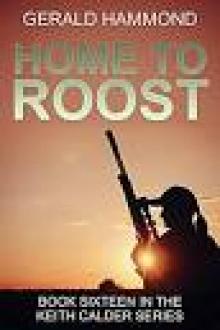 Home to Roost
Home to Roost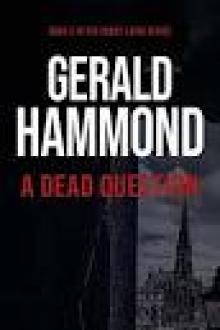 A Dead Question
A Dead Question Twice Bitten
Twice Bitten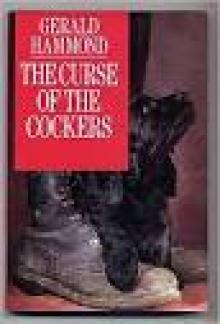 The Curse of the Cockers
The Curse of the Cockers In Loving Memory
In Loving Memory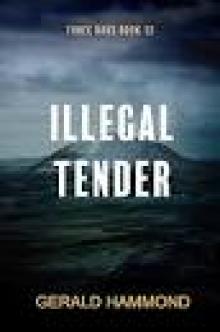 Illegal Tender (Three Oaks Book 12)
Illegal Tender (Three Oaks Book 12) Cold Relations (Honey Laird Book 1)
Cold Relations (Honey Laird Book 1)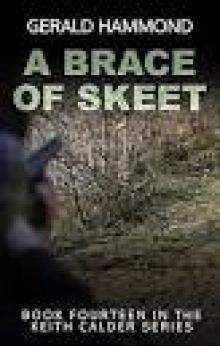 A Brace of Skeet
A Brace of Skeet Silver City Scandal
Silver City Scandal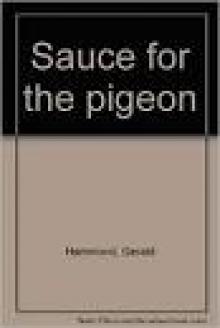 Sauce For the Pigeon
Sauce For the Pigeon Cold Relations
Cold Relations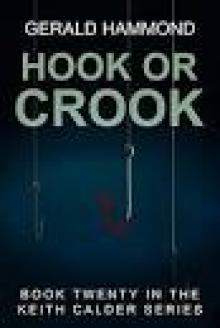 Hook or Crook
Hook or Crook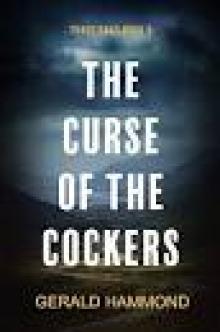 The Curse of the Cockers (Three Oaks Book 5)
The Curse of the Cockers (Three Oaks Book 5)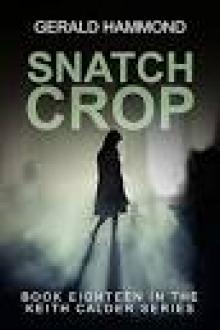 Snatch Crop
Snatch Crop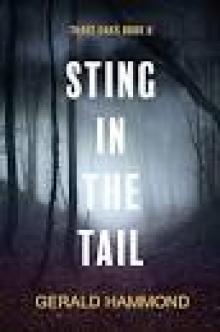 Sting in the Tail (Three Oaks Book 6)
Sting in the Tail (Three Oaks Book 6)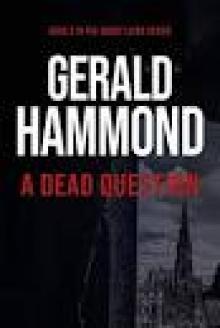 A Dead Question (Honey Laird Book 2)
A Dead Question (Honey Laird Book 2)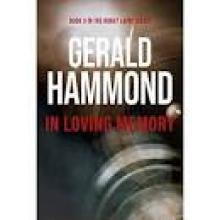 In Loving Memory (Honey Laird Book 3)
In Loving Memory (Honey Laird Book 3) Thin Air
Thin Air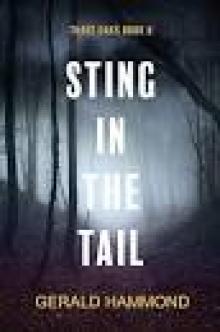 Sting in the Tail
Sting in the Tail Pursuit of Arms
Pursuit of Arms The Game
The Game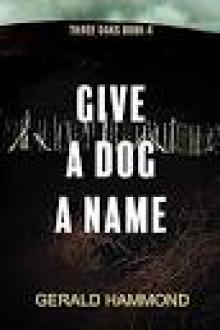 Give a Dog a Name (Three Oaks Book 4)
Give a Dog a Name (Three Oaks Book 4) Fair Game
Fair Game The Executor (Keith Calder Book 10)
The Executor (Keith Calder Book 10)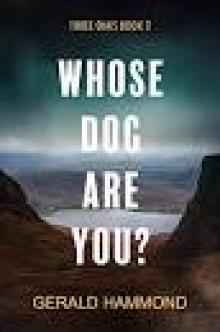 Whose Dog Are You? (Three Oaks Book 2)
Whose Dog Are You? (Three Oaks Book 2)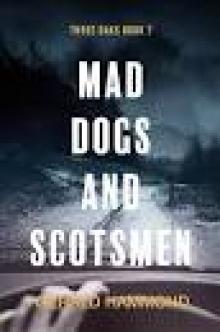 Mad Dogs and Scotsmen (Three Oaks Book 7)
Mad Dogs and Scotsmen (Three Oaks Book 7) Cousin Once Removed
Cousin Once Removed The Worried Widow
The Worried Widow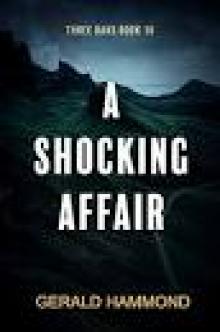 A Shocking Affair
A Shocking Affair Dead Weight (Three Oaks Book 11)
Dead Weight (Three Oaks Book 11)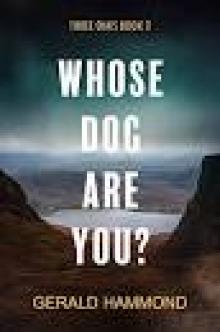 Whose Dog Are You
Whose Dog Are You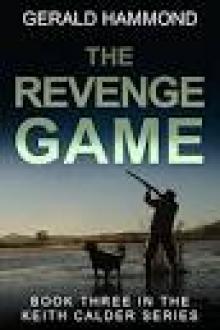 The Revenge Game
The Revenge Game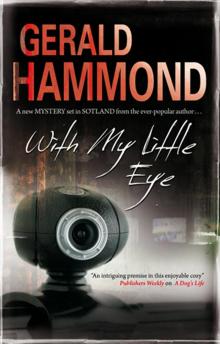 With My Little Eye
With My Little Eye Doghouse (Three Oaks Book 3)
Doghouse (Three Oaks Book 3)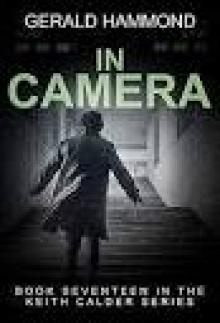 In Camera
In Camera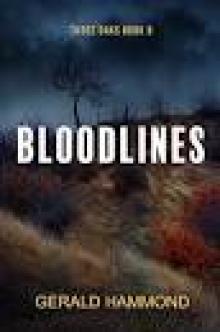 Bloodlines (Three Oaks Book 8)
Bloodlines (Three Oaks Book 8)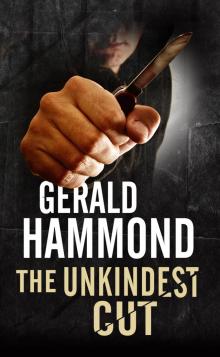 The Unkindest Cut
The Unkindest Cut